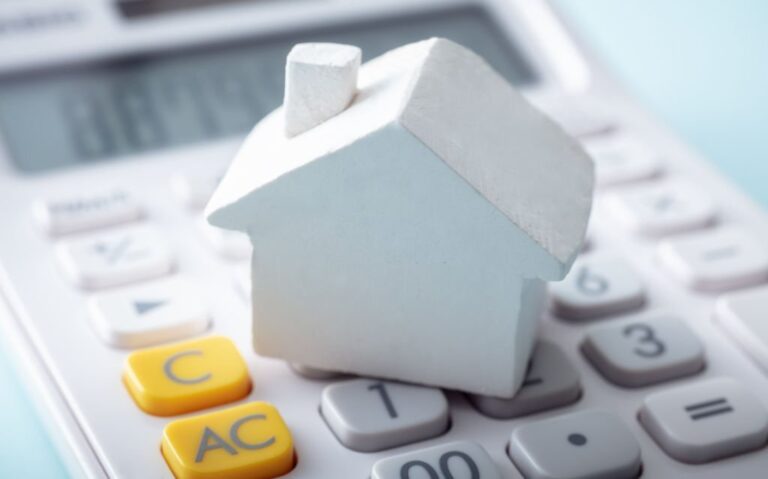In the ever-evolving real estate market, selling a home can seem daunting, especially when aiming to secure the best possible price. The significance of this endeavor cannot be overstated, as the financial returns from a home sale can substantially impact a person’s financial stability, future investments, and overall quality of life. Therefore, understanding and implementing effective strategies to maximize the sale price is critical. This article will delve into various approaches designed to optimize the value of your property and facilitate a successful transaction. Our thesis is centered on this: to achieve the best price when selling your home, a comprehensive strategy involving understanding the real estate market, preparing the home for sale, setting the right price, and effectively marketing the property is indispensable.
Understanding the Real Estate Market
Understanding the current market conditions in real estate is a vital starting point for anyone considering buying or selling a home. The real estate market is dynamic and influenced by many factors, from the broader economy to local neighborhood trends. An informed understanding of these conditions can empower buyers and sellers to make smarter, more strategic decisions.
Analyzing local real estate trends is key to understanding the market. By looking at the number of homes for sale in a neighborhood, the ratio of supply to demand, and the median home prices, you can gain insights into whether the market currently favors buyers or sellers. For instance, when many homes are for sale but few people want to buy, it’s an excellent time to be a buyer. Conversely, when demand outstrips supply, sellers have the advantage.
Other Influences
Other influences on the market include interest rates and the broader economy. For example, rising mortgage rates can make financing a home purchase more expensive, dampening demand, whereas falling rates can stimulate demand. Similarly, a robust local economy, characterized by job creation and wage growth, can bolster the housing market.
To perform this analysis, you can utilize various market data sources, including real estate websites, government housing statistics, and local news. In addition, tools for desktop market research are also available that can help you infer and forecast market trends over the short term.
Preparing Your Home for Sale
When preparing your home for sale, first impressions are of utmost importance. Potential buyers form opinions within seconds of seeing your property, and those initial impressions can significantly impact their purchasing decisions. Therefore, it is essential to ensure that your home presents itself in the best light, both inside and out.
Minor improvements and repairs can significantly enhance the appeal of your home. Consider fixing any noticeable issues, such as leaky faucets, broken tiles, or chipped paint. Even minor fixes can make a big difference to the overall impression your home gives, showing potential buyers that the property has been well-maintained and cared for.
Decluttering is Another Crucial Step in Preparing Your Home for Sale.
A clutter-free home looks cleaner and more spacious, allowing potential buyers to envision their life without being distracted by personal belongings. Remember, the goal is to make buyers feel like they’re walking into their future home, not someone else’s current one.
Staging your home effectively can further enhance its appeal. This involves arranging furniture and decor to highlight your home’s best features and create a welcoming, inviting atmosphere. Consider each room’s visual appeal from a buyer’s perspective, and adjust the furniture and decorations accordingly. Ensure window coverings hang evenly and the room feels balanced.
Setting the Right Price
Setting the right price for a property involves careful consideration and analysis. Two crucial elements in this process are home appraisals and market analysis. A home appraisal provides an unbiased estimate of the true (or fair market) value of what a home is worth, typically performed by a professional appraiser. On the other hand, market analysis involves looking at the prices at which similar properties in the same area have recently sold. These two methods comprehensively understand a property’s worth in the current market.
Balancing Between Setting a Competitive Price and Maximizing Returns is a Delicate Task
On the one hand, pricing your property competitively can attract more potential buyers, increasing the chances of a quick sale. However, on the other hand, you also want to maximize returns on your investment. This requires careful consideration of various factors, including the property’s demand, condition, and economic climate.
Different strategies can be used to find the right balance. Cost-plus pricing is one approach where all the costs associated with the property (such as renovations, maintenance costs, and other investments) are calculated, and a percentage is added to ensure profit. However, this strategy should be considered alongside others, like competitive pricing, where prices are set for similar properties in the market.

What Is the Most Profitable Way to Sell My House?
One question that often comes to mind is, “What is the most profitable way to sell my house?” The answer depends on several factors, including timing, market conditions, and your home’s unique features. For example, the real estate market often experiences high demand during spring and early summer, making it an optimal time to sell your home for the best price.
Working with a seasoned real estate agent can also contribute to a profitable sale. These professionals understand the local market, can assist in setting a competitive price, and have the negotiation skills to secure the best deal for you. They can also provide helpful advice on staging and marketing your property to attract potential buyers.
When is the Best Time to Sell Your House?
Determining the most advantageous moment to sell your property largely hinges on a matrix of market indicators and personal circumstances. A common belief among real estate professionals is that the best time to sell is during a seller’s market when demand for homes exceeds the available supply, which can lead to competitive bidding and potentially higher selling prices.
Various factors can indicate a good time to sell. One such indicator is intense buyer competition, leading to quicker sales and potentially higher prices. An upward trend in sale prices can also suggest favorable selling conditions. Low taxes and interest rates can also make purchasing more attractive to buyers, benefiting sellers.
Furthermore, a robust economy might inspire confidence among buyers, prompting them to invest in real estate.
While these market conditions are crucial, it’s equally important to consider your circumstances. For example, the timing will largely depend on your needs and life changes if you sell your primary residence. However, if the property is an investment, market conditions might play a more significant role.
Understand Your Local Market
Understanding your local market is a critical factor in determining how to sell your home for the best price. This involves examining supply and demand dynamics, current property prices, and the latest trends in your area’s real estate market. You can gain insights into these trends by studying recent sales of comparable properties in your neighborhood, following real estate market reports, and consulting with real estate professionals.
Epilog – How to Sell Your Home for the Best Price
Undoubtedly, one of the most significant decisions homeowners’ faces is how to sell their homes for the best price. The process can seem overwhelming, but you can navigate this journey successfully with a strategic approach and an understanding of the real estate market.
Frequently Asked Questions:
What is the most profitable way to sell my house?
For optimal profitability in the real estate market, your home’s pricing strategy necessitates a fine-tuned equilibrium between your financial gain and the allure for potential investors. For example, setting the price too steep might deter potential buyers, while a meager price could undermine your profit margin.
How to understand your local market?
Grasping the dynamics of your local market entails a comprehensive review of recent real estate transactions involving properties akin to your own. Scrutinizing the final selling prices and the duration these properties lingered on the market can yield insights into prospective buyers’ expectations and the pace at which real estate transactions occur.
What should I do to my house before I sell it?
In preparation for placing your home on the market, ensure it exudes an irresistible charm to prospective buyers. Address any outstanding repair work, declutter the interiors, thoroughly clean, and thoughtfully stage the home. Enhancements like a fresh layer of paint or a meticulously groomed garden can significantly bolster the overall appeal of your property.
What is the biggest selling point of a house?
A property’s location is its most significant selling point in real estate. Prospective buyers often prioritize factors like proximity to educational institutions, retail outlets, and public transit systems. Nonetheless, other elements, such as the property’s dimensions, floor plan, and overall condition, also hold substantial sway in the decision-making process.




